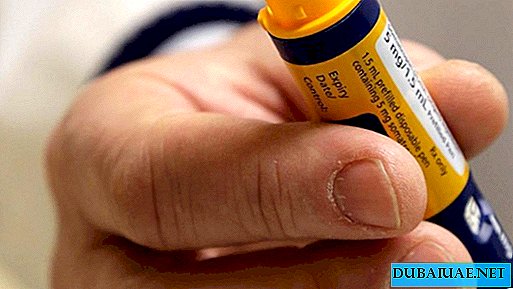 Text: Igor Shevkun
Text: Igor Shevkun WHAT IS INTERNET DEPENDENCE AND ADDICTION TO SOCIAL NETWORKS - A DISEASE BORN BY CIVILIZATION, OR AN OLD PROBLEM, Suddenly Becomes Actual? TAKING IT TOGETHER.
Imitation game
And without that, doctors want to replenish significant volumes of the International Classification of Diseases with a new class - Internet addiction, which, according to experts, could soon recapture the palm of alcoholism, drug addiction and gluttony. Previously, such a "nonsense" - a growing amount of technology, whether it be gadgets, social networks, video games, applications, websites, 3D films - the society did not pay attention. However, today psychologists are sounding the alarm: the problem is becoming an epidemic. Some statistics: in 2000, the number of Internet users around the world was about 48%, and after ten years it grew to 63%. According to statistics, 85% of adults and 96% of youth from 18-29 years old use a cell phone. The average user visits 40 sites a day and switches from one program to another up to 36 times per hour, and some began to spend more than 18 hours on a computer.
With a few rare exceptions, people are, by nature, eternally unsatisfied creatures. Once in the network of the World Wide Web and new gadgets that literally flooded life, they do not think to stop. Everything would be fine, but suddenly they notice that this is not the life they aspired to 10 years ago.
With the advent of the generation of the Internet, many of us got the feeling that some event did not really happen until we wrote about it on Facebook, Instagram or Twitter. Arriving at the resort, we do not enjoy a breathtaking view of the sea, but we check incoming emails by e-mail, we swear to our family that we will regularly go skype, we are anxious if we do not go online for a long time and, finally, flaunt the images of our "perfect" Instagram life. Now people seem to compete with each other, creating imaginary themselves, “spying” on friends, feeding their ego, celebrating their finest hour. You can watch other people's photos for hours, read what people are doing: only dazzling smiles, airy dresses, alluring travels, a dictatorship of glamor, culinary masterpieces from restaurants, selfies against the backdrop of sights, sweet dreams ... In general, a vanity fair and digital utopia. The special term "network exhibitionism" was even introduced into everyday life - the desire to notify the whole world about almost every step, updating statuses and posting photos on social networks.
Nowadays, many are familiar with the situation when friends are at the party in the same room, but do not communicate with each other, because everyone is busy with their smartphone. Common sense dictates that with all the prevalence of technology, the fight against digital disease is possible and necessary. But sometimes it is very difficult to do this - it requires willpower.
SYMPTOMS OF THE INTERNET DEPENDENCE
Loss of a sense of time. It seems to a person: I went into the network for half an hour, and sat for several hours.
Ignoring your own needs. Dependence on social networks, on the Internet is so immersed in virtual life that attention to one’s own feelings and external stimuli is significantly dulled.
Rejection of real social life. Events that seemed interesting before, are now increasingly replaced by virtual walks through various Internet resources. Conversations with friends living even nearby are increasingly happening online now.
Find and neutralize
CNN reporter Daniel Seeberg has released the Digital Diet book, which asks questions: Are technology killing us, are they destroying important aspects of our lives? “I was immersed in social networks, gadgets and devices,” Daniel writes. “At some point, I realized that I became very dependent on them, constantly using technology in my life. Alas, not everyone understands that dependence on digital technology "This is when you often immerse yourself in virtuality, not paying attention to real people in your life. For me, awareness of this has become a call to action." The book provides simple and useful tips on the digital diet and reminds you that digital technologies should be managed by you, not they, by you, and also teach you to get along peacefully with gadgets and use them rationally.
Seeberg offers a 4-step program and a 28-day diet to defeat digital addiction and bring harmony back to real life.
By the way, he still recalls with a shudder and joy how he deleted his Facebook profile, where, among 1664 friends, relatives were close to random acquaintances and subscribers. After that, the journalist began to spend on the Internet no more than 90 minutes a day, including checking mail. The book also teaches how to calculate your "Virtual Weight Index", which will determine how much you need to "lose weight" when interacting with the network and, ideally, reduce this figure. The author of "Digital Diet" urges you to never put the phone between you and your partner, leaving it in your bag or pocket.
Another interesting look at Internet addiction is expressed by Doctor of Biological Sciences, head of the laboratory for the development of the nervous system of the Institute of Human Morphology, Russian Academy of Medical Sciences Sergey Savelyev. The professor sees the Global Web as a hierarchical system of relationships where people can safely achieve dominance without getting up off the couch. In his opinion, the Internet has become a mass comforter and pleasure. Who has how many likes? Or who has how many links, what is the rating? What is this, if not the definition of who is more successful in the social environment?
And many have already successfully turned into an endless pursuit of the number of collected likes and comments in a loud coin - after all, likes and subscribers can be easily bought for very little money (which has already made many skillful entrepreneurs millionaires). “Such behavior is energetically more beneficial for the human brain,” says Sergey Savelyev. “You don’t need to go and get the beast, you can just talk about it on the Internet. People stay at home, they are full, but thanks to the Internet they achieve dominance.” At the same time, the professor admits that it is simply impossible to come up with a faster and faster primitivization of the human brain than the Global Web.
Caught on the Net
 Fans of discussing the pros and cons of digital technology recognize that a new era has begun, and along with amazing features, it promises new challenges for professionals. They cherish the hope that, on the one hand, progress creates the future of the World Wide Web, and on the other hand, leads to Internet addiction and even "digital motion sickness" - a disease of the 21st century caused by the new Apple operating system, in which the parallax effect makes the interface three-dimensional (from time to time complaints are received from users about the discomfort when using it), as well as 3D films and computer games. New displays can so immensely imitate the surrounding reality that they can disorient the human brain.
Fans of discussing the pros and cons of digital technology recognize that a new era has begun, and along with amazing features, it promises new challenges for professionals. They cherish the hope that, on the one hand, progress creates the future of the World Wide Web, and on the other hand, leads to Internet addiction and even "digital motion sickness" - a disease of the 21st century caused by the new Apple operating system, in which the parallax effect makes the interface three-dimensional (from time to time complaints are received from users about the discomfort when using it), as well as 3D films and computer games. New displays can so immensely imitate the surrounding reality that they can disorient the human brain.
It also turns out that 3D cinemas need to be bypassed per kilometer, because people around the world began to complain about feelings of nausea, dizziness, headaches and disorientation in space after watching a movie with 3D effects.
Researchers at the University of Kentucky examined the mode of presence of users on the Internet, to name the main symptoms of Internet addiction. It turned out that these were mood swings, and the inability to manage the time spent on digital technologies, the need to increase the amount of this time or in a new game to create the desired mood, weak-willed attitude to promises, and deterioration of vision.
It is also a refusal to participate in the project, if it is not connected with digital technologies, and a decrease in the role of a person in public life. Finally, scientists came to the conclusion that Internet addiction negatively affects the quality of work with all its attendant consequences. As a result, this dependence was recognized as a no less serious phenomenon than drug addiction, because it provokes the work of similar mechanisms of the brain, with the possible exception of the absence of intoxication. Although the damage to physical health is not small. You can overcome it only in the same ways as the other addictions - find the strength in yourself to make the decision to quit your fascination with the virtual world and social networks (or reduce your time on the Internet very much) and start living a real life.
They say that those who lack the courage to live in the real world seek to enter the virtual world. However, to be someone else or to be yourself - the choice is always yours. A feature of virtual space is that it does not exist. So why waste your precious time and life on something that does not exist?
Internet addiction is an obsessive and uncontrolled desire to immediately connect to the Internet and the inability to get out of the network on time
Tip
In order to overcome network addiction, try to go on a trip to where the Internet is missing. Let the first time it will be difficult for you to do without the usual resources, but after a couple of days the condition will improve, the "thirst" will let go. Upon returning, you will realize that your absence from your favorite network resources has absolutely no effect on your life. Only looking up from the monitor or phone display, you can understand another person, see the beauty of nature, appreciate the sights and breathe clean air. And this means returning to real life.








